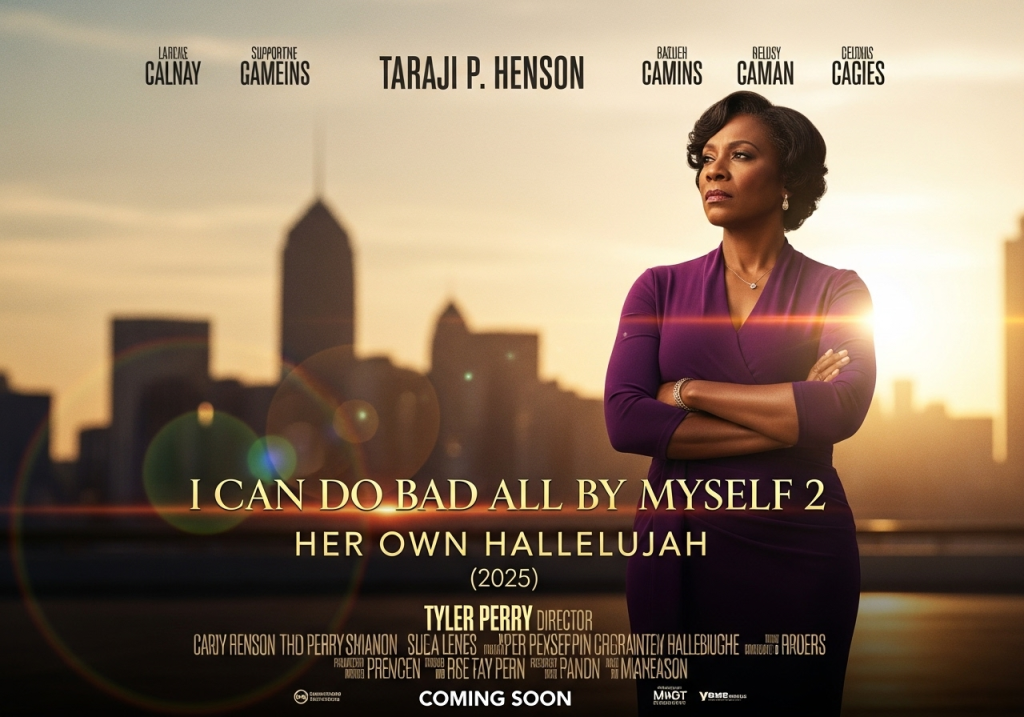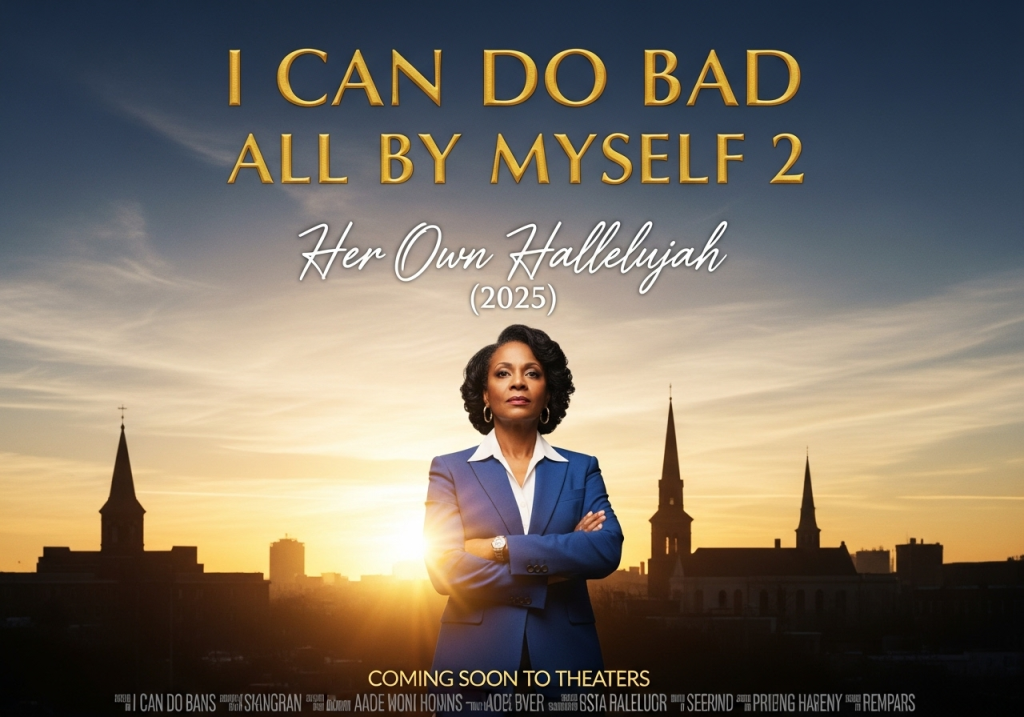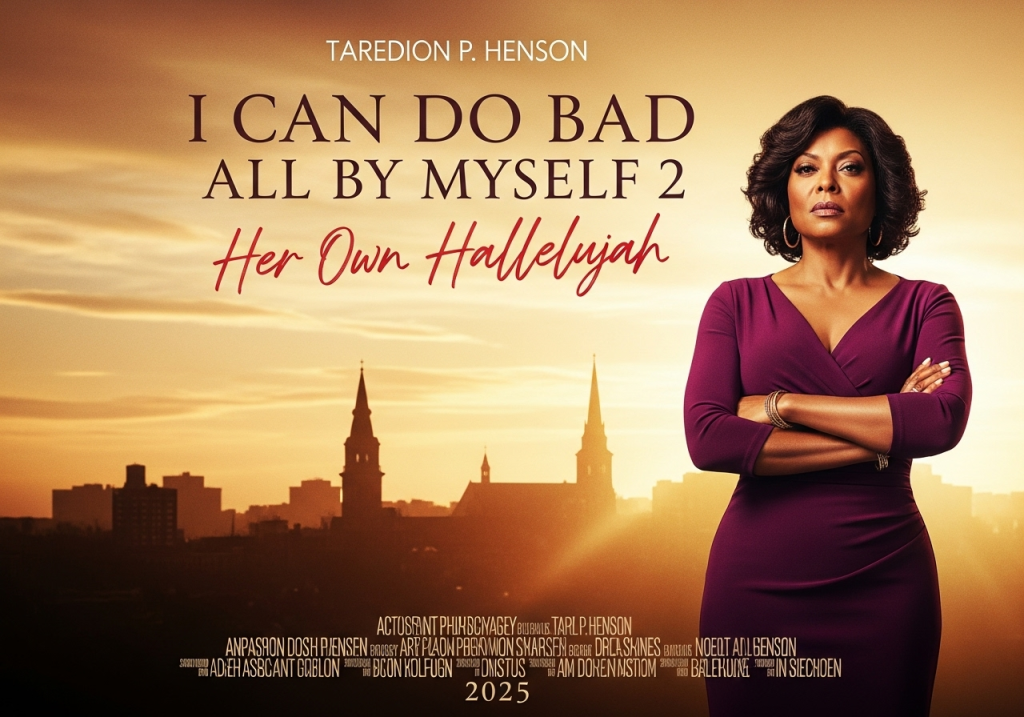I Can Do Bad All By Myself 2: Her Own Hallelujah (2025) is a deeply emotional and spiritually uplifting sequel to Tyler Perry’s 2009 hit, returning to the story of April (Taraji P. Henson), a woman who once hit rock bottom but found redemption through love, faith, and family. In this new chapter, the film explores what happens after survival—when healing isn’t just about moving on, but stepping into purpose.
Set over a decade after the original, April is now sober, married to Sandino (Adam Rodriguez), and running a community arts and wellness center out of her late grandmother’s old church. She’s a mentor to young women in the neighborhood, including Jennifer, now a college-bound teen struggling to forgive her past and embrace her future. Though April has come a long way from the selfish, broken woman she once was, her faith is tested when tragedy hits close to home: her marriage is strained, her center faces closure, and the children she once saved begin slipping through the cracks.

At the same time, April’s estranged mother—a gospel singer-turned-evangelist—returns to town unexpectedly, seeking reconciliation after years of silence. Their reunion ignites buried trauma and forces April to confront the pain of generational neglect, church hypocrisy, and the question she’s been running from: Can you ever fully forgive the people who failed you?
Enter Madea, back with her no-nonsense wisdom, comedic timing, and unexpectedly tender insight. She pushes April to stop performing strength and start singing her own hallelujah—not for the church, not for the community, but for herself.
With a powerful blend of music, drama, and spiritual rebirth, the film features original gospel and soul tracks performed by both newcomers and legendary artists, with one climactic number—April’s own “hallelujah” moment—serving as the emotional anchor of the film.

I Can Do Bad All By Myself 2: Her Own Hallelujah is about forgiveness, second chances, and the quiet grace of growth. It’s not just about doing bad and surviving—it’s about choosing to do better, even when no one’s watching. The film closes with a triumphant community concert that not only saves the center but affirms April’s transformation—from broken to whole, from ashamed to anointed.

In classic Tyler Perry fashion, the film delivers laughter, tears, hard truths, and ultimately, healing—reminding us that sometimes, the hardest praise comes after the pain.
